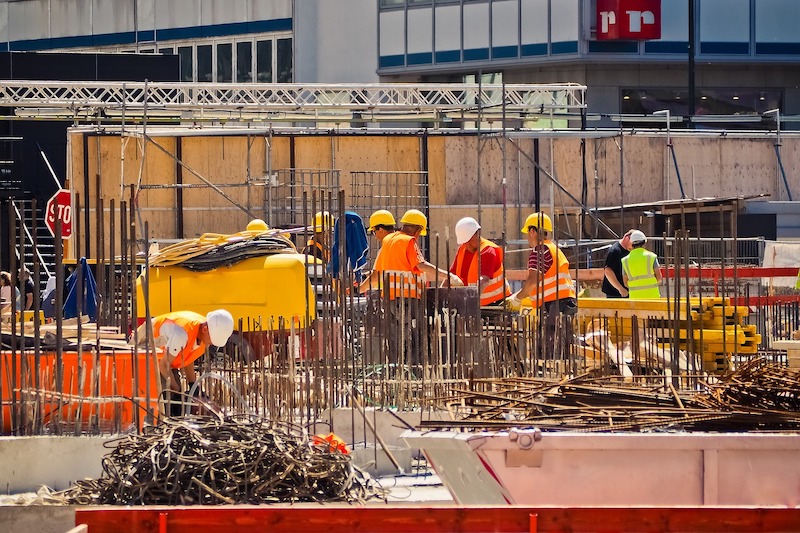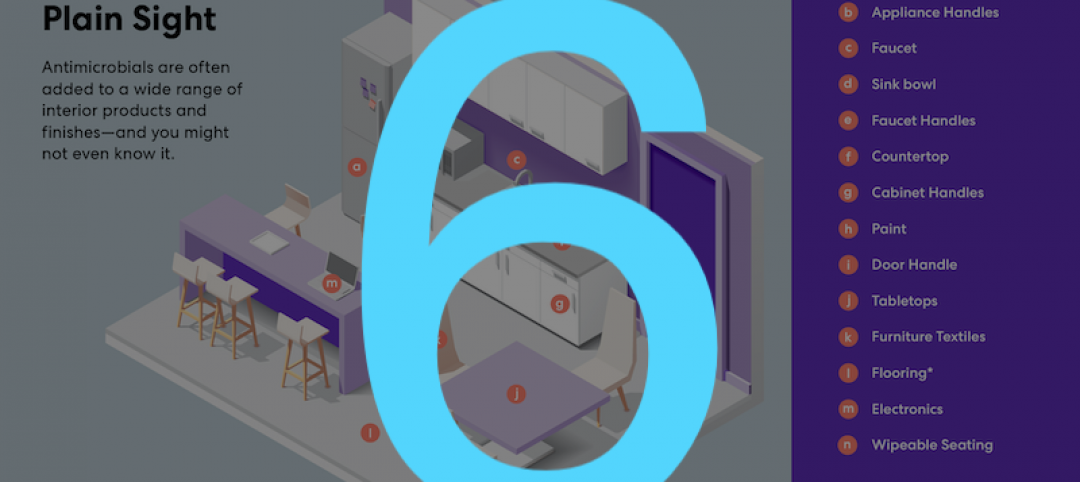The Marcum Commercial Construction Index highlights the continued spending weakness in nonresidential construction during the first nine months of the year and points to a significant anticipated change beginning in 2017. The change is being attributed to the major infrastructure-led stimulus package expected from the new Presidential administration. The national Construction Industry Practice group of Marcum LLP, a top national accounting and advisory firm, produces the quarterly index.
Overall nonresidential construction spending in September totaled $690.5 billion, down a slight 0.7 percent from a year earlier. Of the category’s 16 subsectors, bright spots included Office-related spending, which registered a whopping 23% gain to $70.7 billion; Lodging, up 20% year-over-year to $28.8 billion; Commercial construction, with a 6% gain to $71.7 billion; Amusement & Recreation, up 3.5% to $21.4 billion; and Educational construction, at $87.1 billion, a 3.3% percent increase.
The remaining 11 nonresidential subsectors all recorded fall-offs for the month, with the greatest declines in Sewage & Waste Disposal (-18.8%), Water Supply (-13.7%), Communication (-12.6%) and Transportation (-11.3%).
“Most construction firms report intense difficulty securing electricians, heating/cooling professionals, welders and carpenters, among others,” says Anirban Basu, Marcum’s Chief Construction Economist, in a press release. The construction worker unemployment rate in October was less than half of what it was five years ago, down to 5.7 % from 13.7 % in the same month of 2011. This compares to a national unemployment rate of 4.9% at the end of the 2016 third quarter.
Looking ahead, the Marcum report predicts that a stimulus package will put pressure on wages and inflation and lead to higher interest rates, which in turn will eventually hurt construction spending. “After a period of relatively intense construction spending due in part to a stimulus package, the nonresidential sector could face a sharp slowdown in construction spending thereafter,” it states.
For the complete Marcum Commercial Construction Index, visit www.marcumllp.com/industries/construction.
Related Stories
Market Data | Jun 11, 2020
5 must reads for the AEC industry today: June 11, 2020
Istanbul opens largest base-isolated hospital in the world and AIA issues tools for reducing risk of COVID-19 transmission in buildings.
Market Data | Jun 10, 2020
6 must reads for the AEC industry today: June 10, 2020
Singapore's newest residential district and CannonDesign unveils COVID Shield.
Market Data | Jun 9, 2020
ABC’s Construction Backlog Indicator inches higher in May; Contractor confidence continues to rebound
Nonresidential construction backlog is down 0.8 months compared to May 2019 and declined year over year in every industry.
Market Data | Jun 9, 2020
6 must reads for the AEC industry today: June 9, 2020
OSHA safety inspections fall 84% and the office isn't dead.
Market Data | Jun 8, 2020
Construction jobs rise by 464,000 jobs but remain 596,000 below recent peak
Gains in may reflect temporary support from paycheck protection program loans and easing of construction restrictions, but hobbled economy and tight state and local budgets risk future job losses.
Market Data | Jun 5, 2020
7 must reads for the AEC industry today: June 5, 2020
The world's first carbon-fiber reinforced concrete building and what will college be like in the fall?
Market Data | Jun 4, 2020
7 must reads for the AEC industry today: June 4, 2020
Construction unemployment declines in 326 of 358 metro areas and is the show over for AMC Theatres?
Market Data | Jun 3, 2020
Construction employment declines in 326 out of 358 metro areas in April
Association says new transportation proposal could help restore jobs.
Market Data | Jun 3, 2020
6 must reads for the AEC industry today: June 3, 2020
5 ways to improve cleanliness of public restrooms and office owners are in no hurry for tenants to return.
Market Data | Jun 2, 2020
Architects, health experts release strategies, tools for safely reopening buildings
AIA issues three new and enhanced tools for reducing risk of COVID-19 transmission in buildings.

















